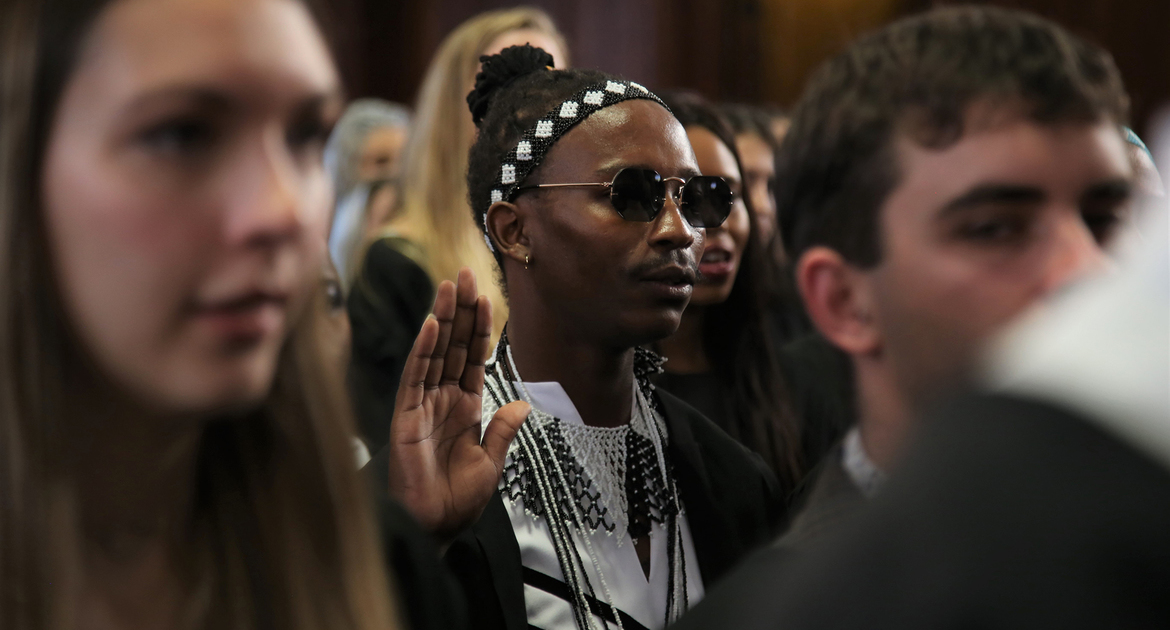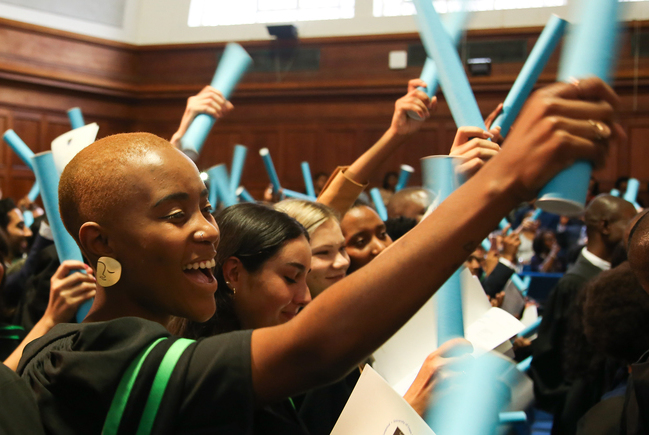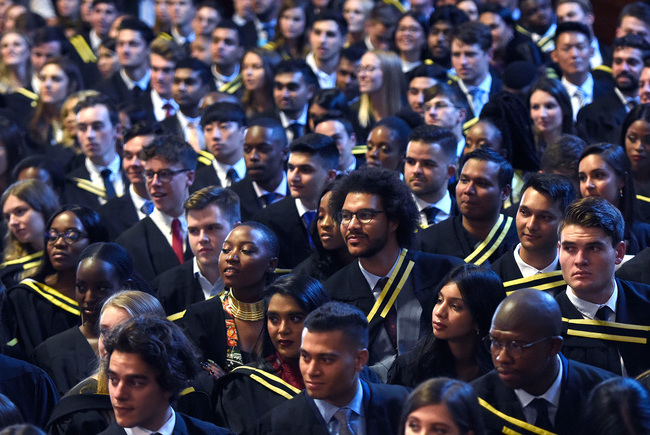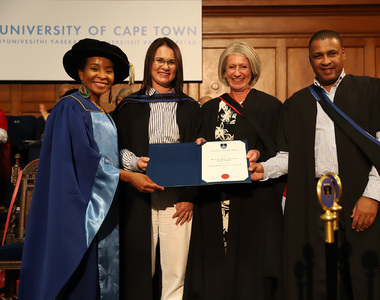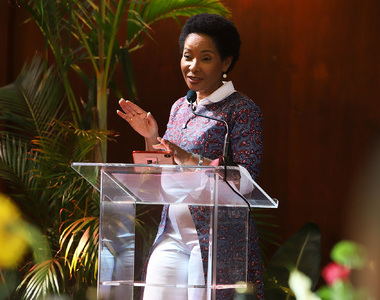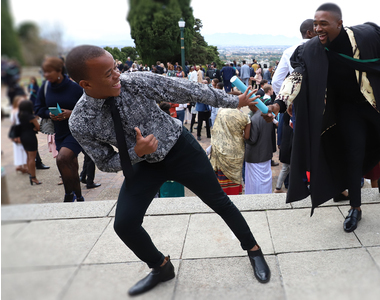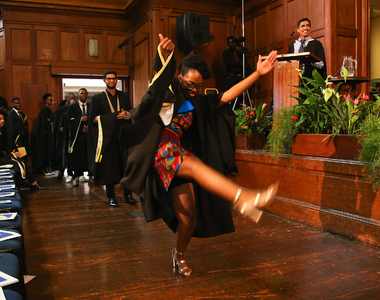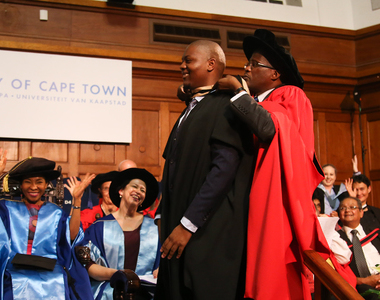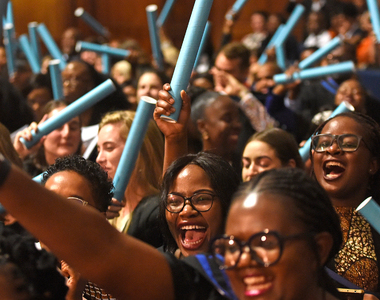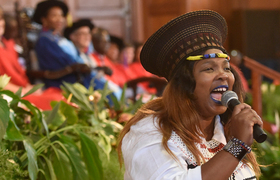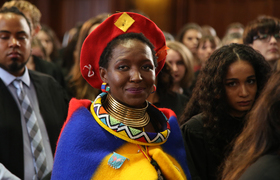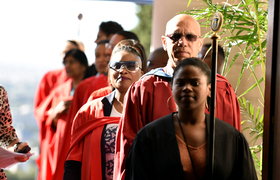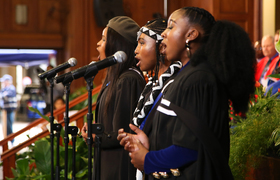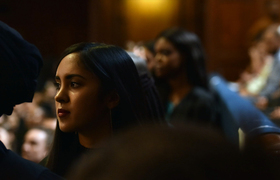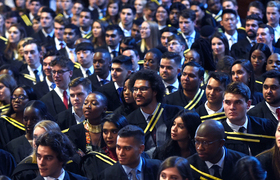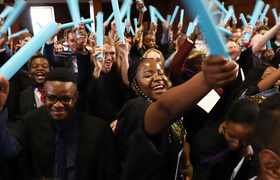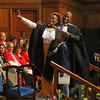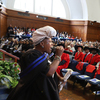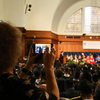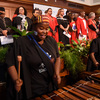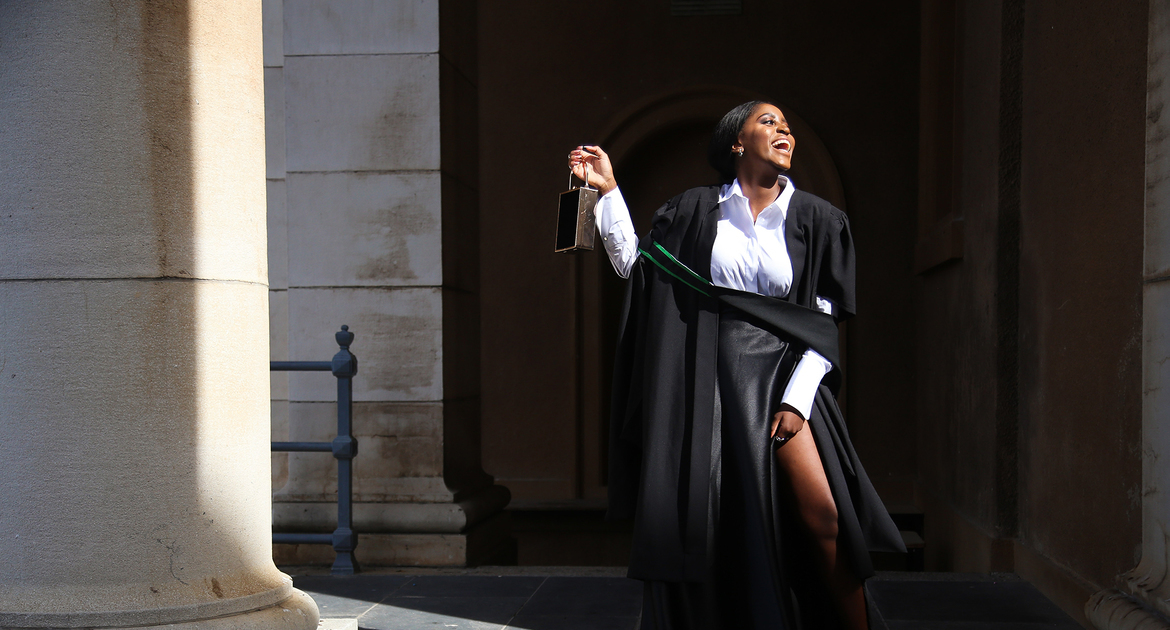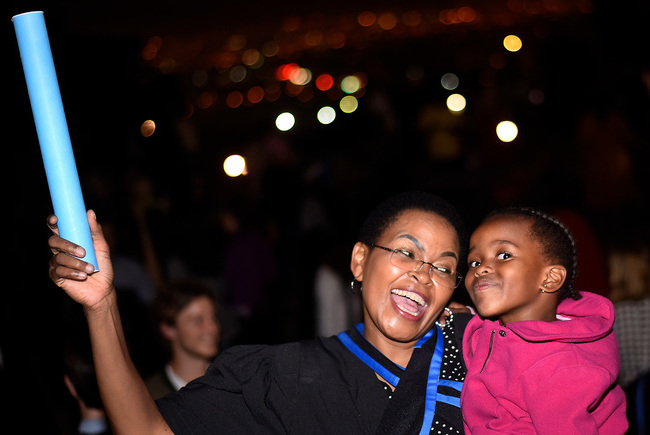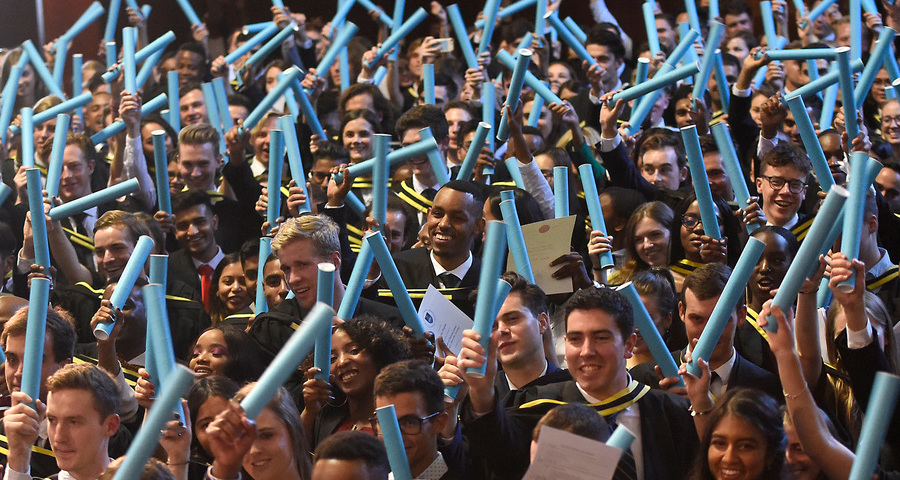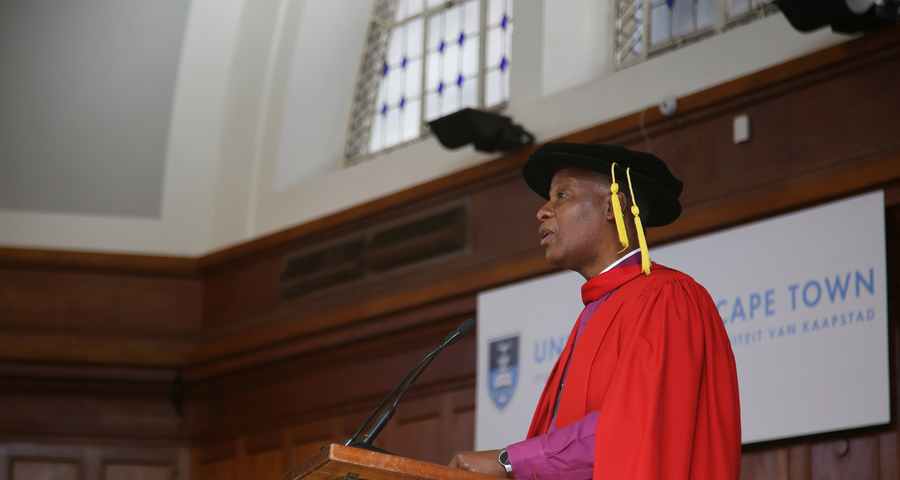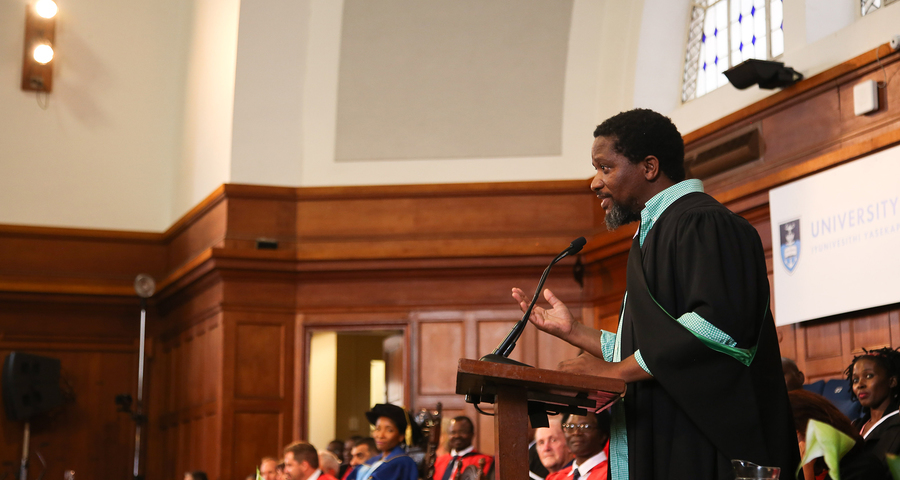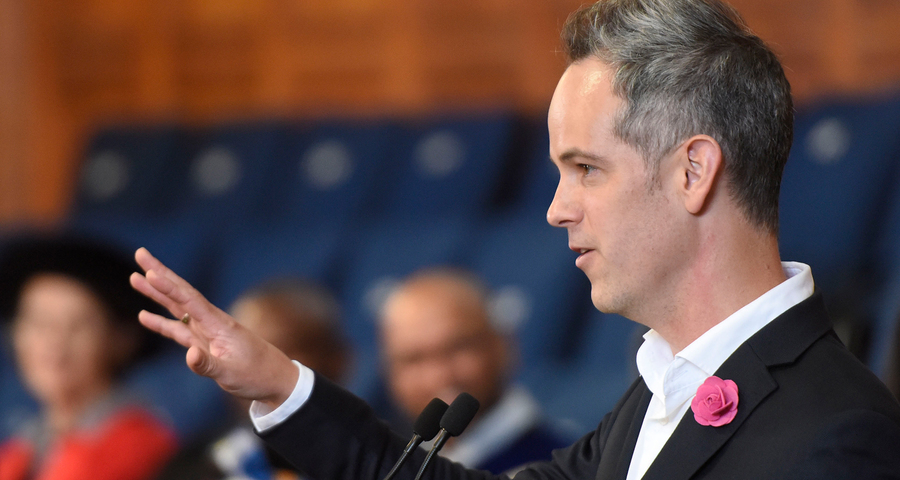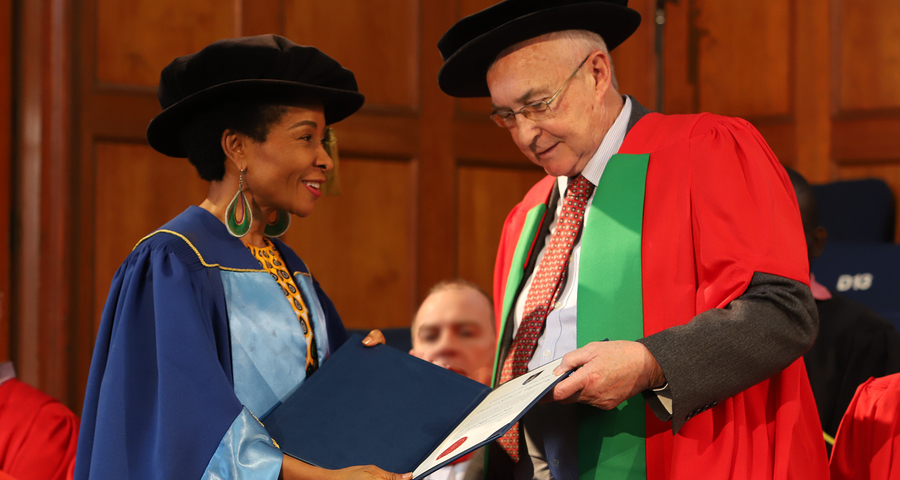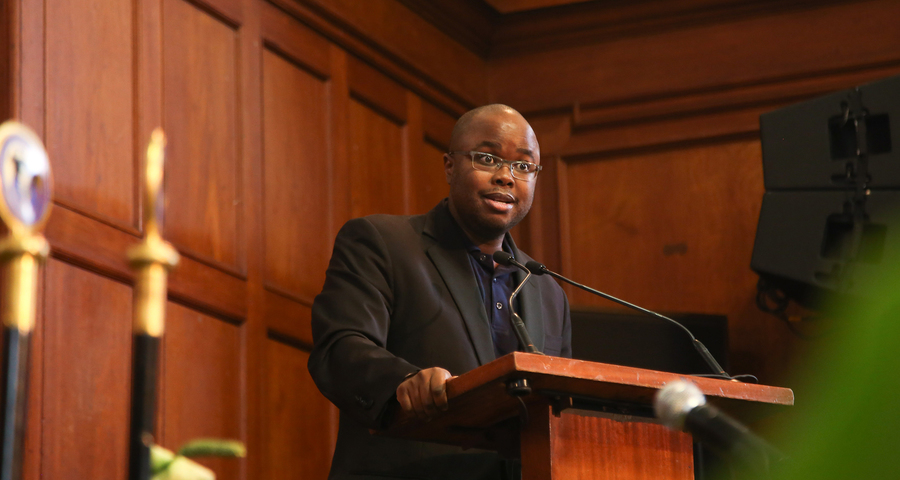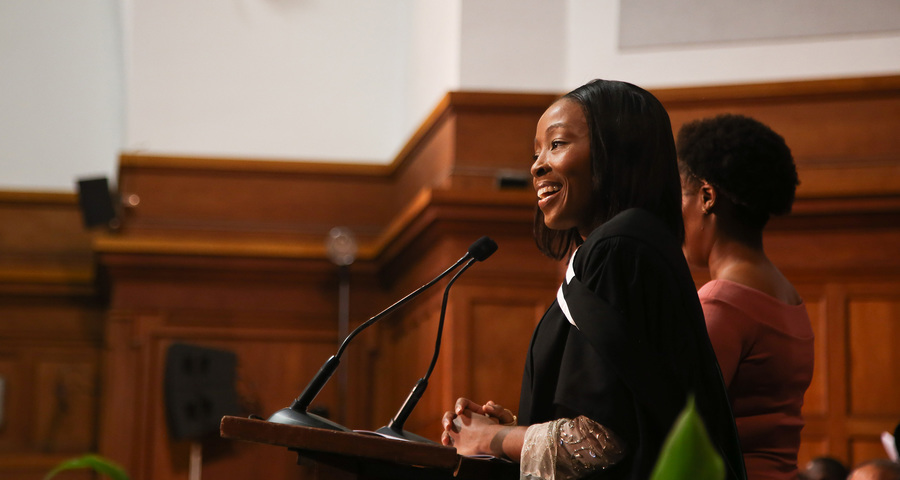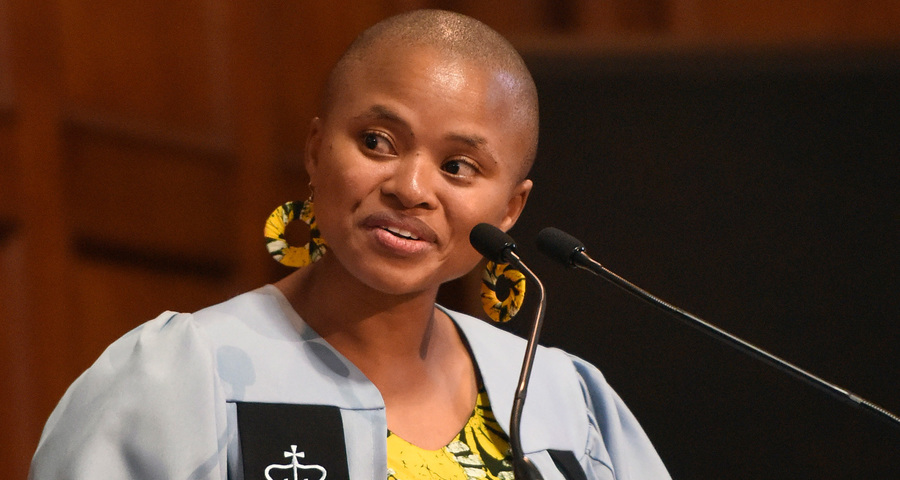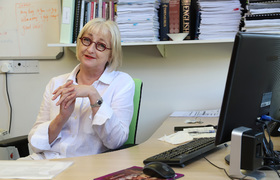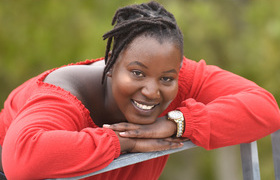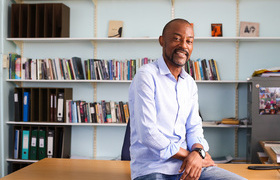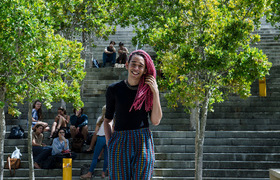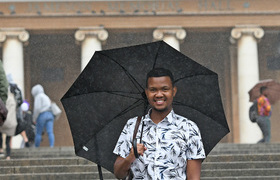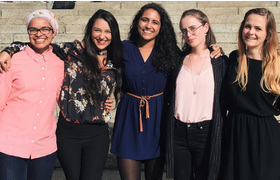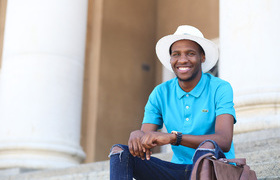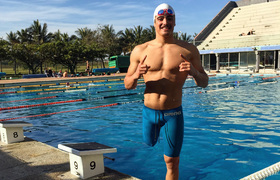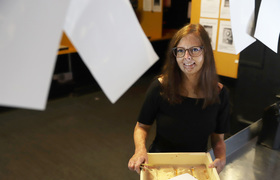Master’s oceanography thesis ‘all at sea’
09 April 2019 | Story Helen Swingler. Read time 7 min.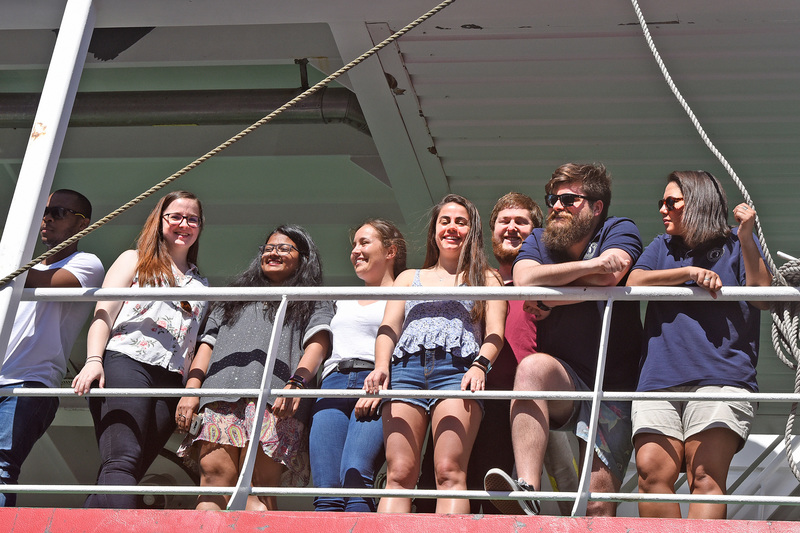
The inhospitable Southern Ocean, an engine room of massive storms and waves, is not a place from which any master’s candidate – not even an oceanographer – would choose to relay final changes to their thesis.
In May last year a New Zealand MetOcean Solutions wave buoy moored in the Southern Ocean recorded a massive 23.8-metre wave. These are not unusual, thanks to persistent and strong winds, which create enormous fetch for wave growth and generate swell waves that travel around the globe.
Not that the weather bothered MSc graduand Jessica Burger of the Department of Oceanography, one of eight UCT researchers aboard the SA Agulhas II during the Weddell Sea Expedition. Much more worrying was the sometimes-fragile internet connection across 5 513 km of heaving sea. She was holding thumbs that it would hold while she emailed her word- and data-heavy MSc document back to Cape Town in time to graduate this month.
International research expedition
The Weddell Sea Expedition, an “unprecedented” international scientific expedition corralled a prestigious group of world-leading glaciologists, marine biologists, oceanographers and marine archaeologists to explore one of the “coldest, harshest, most remote locations in the world” during January and February. The ship returned to Cape Town on 14 March.
The expedition investigated the ice shelves around the Weddell Sea, particularly the Larsen C Ice Shelf from which a giant iceberg calved in July 2017.
It also attempted to locate and survey the wreck of Sir Ernest Shackleton’s 44 metre-long wooden ship, Endurance, built for the Imperial Trans-Antarctic Expedition of 1914–1917. It was trapped and crushed by heavy pack ice, and sank in the Weddell Sea in 1915.
“The most difficult thing about doing [her] corrections at sea was the poor internet connection, which made it very time consuming to download the resources that I needed.”
Burger said the most difficult thing about doing her corrections at sea was “the poor internet connection, which made it very time consuming to download the resources that I needed – and tricky to communicate via email with the people that I needed to on land”.
This meant asking her fellow scientists and crew members to stop using the internet connection while her word- and data-heavy thesis travelled across the seas.
“Getting permission from the captain to isolate the ship’s Wi-Fi for my final submission was actually not difficult. He was very understanding and helpful. The other passengers were only left without Wi-Fi for about an hour.”
Burger’s supervisors are UCT’s Dr Sarah Fawcett of the Department of Oceanography, who was on board the SA Agulhas II for part of the expedition, and Associate Professor Coleen Moloney, director of UCT’s Marine Research Institute.

Burger’s thesis is titled “Drivers of short-term variability in phytoplankton production in an embayment of the southern Benguela upwelling system: an observational and modelling study”.
The study was conducted in St Helena Bay on the west coast of the Western Cape, where high levels of phytoplankton production support important commercial fisheries and other marine life.
It investigates whether light, nutrients or phytoplankton community composition is the most important factor in controlling phytoplankton growth over a short timescale such as an upwelling cycle.
“The high levels of production in St Helena Bay also cause low oxygen conditions and harmful algal blooms. Therefore, if we know what is driving the variability in phytoplankton production in the bay, we can improve our capability of predicting these events,” Burger wrote.
While her MSc thesis work focused mainly on the southern Benguela upwelling system, she plans to conduct her PhD research in the Southern Ocean, her three months on board the SA Agulhas II having “contributed massively” to her interest in this field.
“I am excited to analyse the data we collected here, and to see what we can learn from this remote region of the world’s ocean. On the expedition there were many scientists from a variety of fields which showed me the importance of interdisciplinary research.
“It was very inspiring to be surrounded by such dedicated scientists who all have different specialities but who all share a similar passion for Antarctic research. It also helped me to put my work into perspective and see how my work might contribute to the existing knowledge of the region,” she said
Burger will graduate on 15 April.
 This work is licensed under a Creative Commons Attribution-NoDerivatives 4.0 International License.
This work is licensed under a Creative Commons Attribution-NoDerivatives 4.0 International License.
Please view the republishing articles page for more information.
Graduation April 2019
The University of Cape Town honoured over 5 000 students during 14 graduation ceremonies that took place from Wednesday, 10 April until Thursday, 18 April 2019. During the 14 ceremonies – attended by about 14 000 people – 70 doctoral degrees and 383 master’s degrees were conferred. An honorary doctorate in engineering was be awarded to Professor David Roger Jones Owen on Saturday, 13 April 2019. Among the speakers at the various ceremonies were Judy Sikuza, deputy executive director of the Mandela Rhodes Foundation; Nkazi Sokhulu, co-founder and CEO of Yalu Financial Services; Sam Paddock, co-founder of GetSmarter and GetWine; UCT engineering alumnus Mavo Solomon; and Anglican Archbishop Thabo Makgoba.







